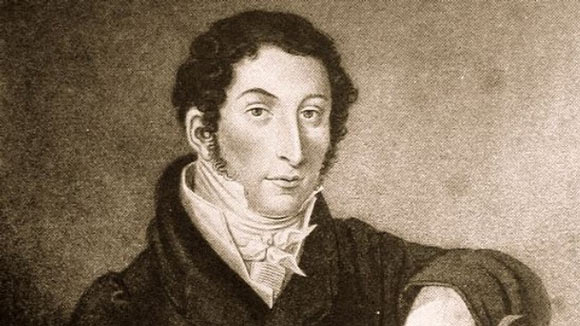Carl Maria von Weber (1786–1826) was a German composer, conductor, and pianist who played a crucial role in the transition from the Classical to the Romantic era of Western classical music. Here are 10 interesting facts about this influential composer:
1 – Early Prodigy:
Weber showed prodigious musical talent from an early age. He began studying piano with his father at the age of six and later received lessons from prominent musicians like Michael Haydn and Abbé Vogler.
2- Operatic Pioneer:
Weber is often regarded as one of the pioneers of German Romantic opera. His opera “Der Freischütz,” composed in 1821, is considered a landmark work in the genre and played a significant role in shaping the German opera tradition.
3 – Innovative Orchestration:
Weber was known for his innovative orchestration techniques, experimenting with different instrument combinations and exploiting the full potential of the orchestra. His orchestral works, such as the overture to “Der Freischütz,” showcase his mastery of orchestral color.
4 – Friendship with Beethoven:
Weber had a close friendship with Ludwig van Beethoven. Beethoven admired Weber’s talent and even suggested collaborative projects, although none materialized. Weber, in turn, held great respect for Beethoven’s genius.
5 – Pioneer in Romantic Piano Music:
Weber made significant contributions to the Romantic piano repertoire. His piano compositions, including the “Invitation to the Dance,” influenced later composers like Hector Berlioz and Franz Liszt.
6 – Opera Innovations:
Weber’s operas introduced new elements to the genre, such as supernatural themes and folkloric elements. “Der Freischütz” is particularly notable for incorporating German folk traditions and creating a uniquely nationalistic operatic style.
7 – Conductor and Critic:
In addition to composing, Weber was an accomplished conductor and music critic. He held various conducting positions and contributed to music journalism, providing insightful critiques of contemporary works.
8 – Influence on Richard Wagner:
Richard Wagner, one of the most influential figures in opera, acknowledged Weber’s impact on his own work. Wagner’s concept of the “total artwork” (Gesamtkunstwerk) was influenced by Weber’s fusion of drama and music.
9 – Royal Court Composer:
Weber served as a court composer to King Frederick William III of Prussia, a position he held from 1817 until his death in 1826. This role allowed him to compose music for various state occasions and royal events.
10 – Tragic End:
Weber’s life was cut short at the age of 39. He died in London in 1826, while on a concert tour, due to complications related to tuberculosis. Despite his relatively short career, Weber’s contributions to music left a lasting legacy, influencing the Romantic era and beyond.


Comments are closed